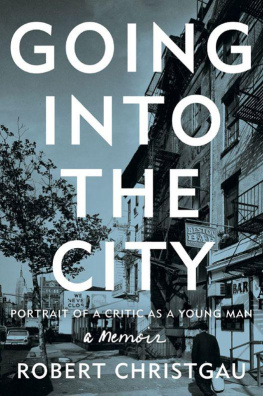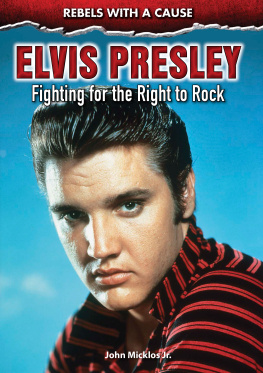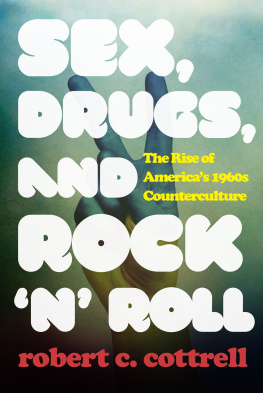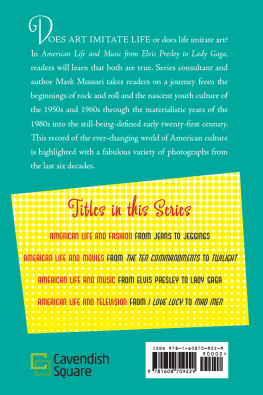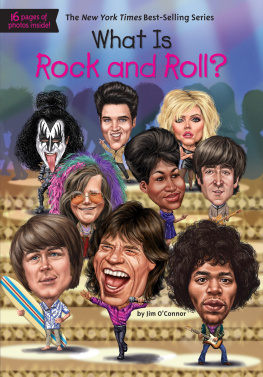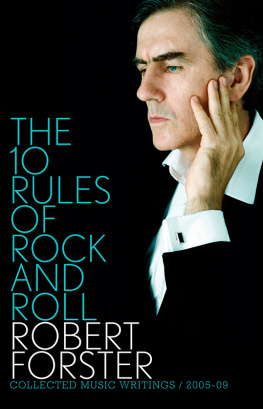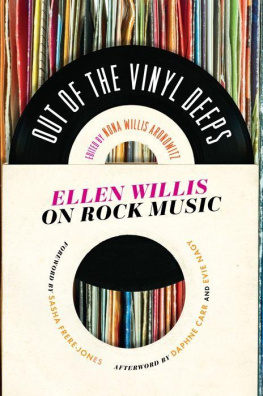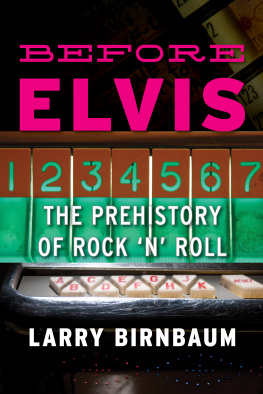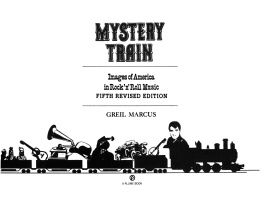
TO EVERY FRIEND AND LOVED ONE MENTIONED IN THIS BOOK,
AND PLENTY WHO ARENT. OTHER PEOPLE ARE WHAT
MAKE GOOD LIVES POSSIBLE.
CONTENTS
Guide
Most memoirs fall roughly into four categories. First is a subset of the full-fledged autobiography: I Am a Big Deal and This Happened to Me. Second is a specialty of hangers-on, who home in on a single personage, and journalists, who spread themselves around: Fame: An Inside View. Third is the song of the unsung hero: My Adventure. Number four became a growth sector as fiction and confessional veered into one of their half-assed affairs: My Battle with (and Triumph Over!) Dysfunction.
Its absolutely possible to work up a fine book from any of these templates. But none of them is for me. Im a rock critic for Chrissake, only a teensy bit famous no matter how much of my small pond I hog, who decided early on that intimacy with the truly famous would mess up his response mechanisms and analytic equilibrium. Between my hitchhiking miles and my slum apartments, Ive had my share of adventures, but nothing all that spine-chilling or at all epic. Ive never overdone drugs or alcohol. Although I write more about fucking than some think appropriate, the nearest I come to a sexual kink is how healthy my appetite is. And although my rebellion against my parents values was painful and decisive, I was never anything like abused or neglected. As writers go, Im a fairly normal guy.
Some might hold that if my life has been interesting enough to write about, it cannot have been normal. As a democrat in all things, I say thats snobbish baloney. All lives are interestinghow interesting depends on the telling. To choose a single example from my favorite art form, consider John Prines Donald and Lydia, in which a fat arcade cashier and a buzzcut PFC dream all too separately of a sexual bliss Donald tries his hand at in the latrine. These lost kids wouldnt be much fun at a party. But their story is riveting, and all I can say to anyone ill-informed enough to argue that thats because their lives are abnormally sad is, If only. Its probably truer that my own life has been abnormally happy. But since I know many others who enjoy their work and cherish their spouses, Id postulate instead that Prines tale and mine both fall within normal range. Like most people, I grew up by resolving conflicts and overcoming difficulties less gothic than the dysfunction-hawking norm. Whats abnormal about me is every good critics stock in trademy sensibility, honed by the excess of thought Ive put into my history, my values, and my prose. My zeal at pursuing the fundamental human task of incremental growth is the main reason I get to peddle my ideas about popular music. And its also why I get to publish a memoir.
Right, Im the Dean of American Rock Critics. I was present at the creation of an influential strain of cultural discourse that some believe presaged postmodernism, if thats a selling point. Without half trying, Ive met more famous people than Donald or Lydia could dream. Trying with all my might, Ive reviewed more record albums than most people could stand. Im a renowned editor and respected teacher whos published millions of words and five books. All these accomplishments pack enough intrinsic interest to generate some stories worth repeating and some ideas worth hammering home. The informed celebration of popular culture has been a mission for me, and a memoir is a great place to evangelize about it. Its also the perfect place to expand on the theoretical differences that separate me from my compeers old and young. And of course, its where I get to put some backstory into those values I put so much thought into.
But Im more normal than the strange job I made up for myself. My life paralleled a lot of American lives before the Janus-headed quants of the banking and computer industries worked their more-is-less wham-jam on the national weal. It was the explosion of popular culture as both biz and way of art that made rock criticism inevitable, not vice versa. Plenty of baby boomers swam against the suburban tide to reclaim the urban center and then gentrify it past the tipping point. Plenty busted out of the born-again straitjacket like Hugh Hefner and Martin Luther King before them. And plenty found the meaning of their lives in an eros that endures. One of the secrets of rock criticism is that all of us were well-situated to get on top of these cultural developments sensibility-wise, and I in particular had quite the leg up. Not only did my urban journey suit a music whose first major history was called The Sound of the City, my religious angst suited a music invented mostly by restless Christians. So did a 1942 birth date that made me a little younger than the rock and roll artists who lit up the 50s and a little older than the boomers who stormed the 60s.
But let me get on my soapbox here. This being American popular music, race greatly complicates the story. Crucial though it was that the cities Charlie Gillett praised were centers of commerce and hot-beds of hippiedom, the post-Great Migration demography in which the term urban music would become a polite way to signify black music was much more to the point. Most of the white Christians who jump-started rock and roll were Southerners hell-bent on the sin and salvation they equated with the music cannonading out of the new black radio stations. Most of their black Christian counterparts adapted gospel usages that put a big fat extra layer of African retention on rock and rolls all too fifty-fifty blues-meets-country origin myth. And while African-American baby boomers were buoyed somewhat by the so-called affluent society, capitalism cheated them so callously that they conceived themselves as the black power generation instead.
Romantic marriagea possibility first explored by the original Romantics thats run parallel to free love in twentieth-century bohemia and proved the preferred domestic arrangement of the 60s counterculture and its childrenplays an even larger role in this book than the church and the city. But at first it was a clumsier fit with rock and roll. Shortsightedly, early rock criticism was so busy kicking out the sociosexual jams that it scorned what was called moon-June-spoon sentimentality, and love songs along numb-come-yum or crave-brave-save lines are tricky to bring off even today. Nevertheless, rock generated Our Songs that knew something about love from the beginningto limit myself to a mere half dozen: Chuck Berrys You Never Can Tell, the Lovin Spoonfuls Darling Be Home Soon, John Lennons Oh Yoko!, Bonnie Raitts Good Enough, Ashford & Simpsons Is It Still Good to Ya, Marshall Crenshaws Monday Morning Rock. And as the music turned out, its mesh with romantic marriage was uncanny. Conceived for teenagers, rock was so fixated on the generation gap that it produced an unprecedented plethora of songs about getting olderand older. As it kept on coming, it demonstrated that a lifetime spent with your first true love was a less naive proposition than cynics claim.
The main way marriage impacted my vocation, however, was intellectually. Thats why I feel deprived when, for example, Christopher Hitchens or Ed Sanders or Richard Hellall of whose recommended memoirs share ground with mine, and all of whom have their reasonsfail to indicate how their wives changed their lives and I bet their work. My 60s partnership with Ellen Willis wasnt a marriageEllen didnt believe in marriage. But I pursued it as I would have a marriage. And since Ellen was both a rockcrit elder and a conceptual dynamo, she set me on the path Ive followed ever since. But that path had more bumps and twists than she cared to map out, with me or anyone else. So instead my chief guide has been my legally wedded wife of four decades, Carola Dibbell, whos also a fine rock critic when I can kid her into it. And in the end, her aesthetic ideas and perceptions enriched mine more decisively than Ellens shaped them. No banal bow to discretion or cool could tempt me to minimize the place of these relationships in my life, or to mince words about them either. They constituted an emotional education more action-packed than my professional progress, and more of a challenge too. Having found all too little writing with useful information to offer in this crucial matter, Ive tried to provide a little myself. Till death do us part, my marriage is my most satisfying achievement.
Next page
